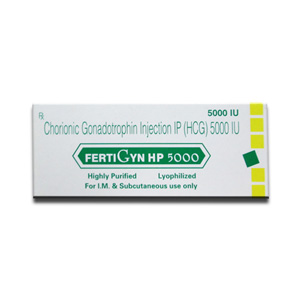Description
Of
Cabergoline is an ergot-derived drug that is used to treat prolactinoma, Cushing's disease and other pituitary adenomas. It is a dopamine receptor agonist on D2 receptors. Due to its inhibitory effect on prolactin cells, it is successfully used to treat disorders of increased prolactin levels. Since its inception in 1981 it has replaced bromocriptine as the first-line drug in the treatment of prolactinoma due to less severe side effects and greater affinity for dopamine D2 receptors.
Classification and mechanism of action
Prolactin is released from the anterior pituitary gland under the influence of dopamine. Cabergoline is a dopamine receptor agonist on D2 receptors, although it also has a lower affinity for dopamine D1, 5HT1 and 5HT2 serotonin, an α1 and α2-adrenergic agonist. Cabergoline also has an inhibitory effect on pituitary lacticide cells that release prolactin. In this way, they reduce prolactin secretion and help reduce prolactinoma.
Take care of Caberlin 0.5 mg
Cabergoline should be stored at room temperature of 20-25oC or 68-77oF.
Store in a cool, dry place out of the reach of children and pets.
How to take Caberlin 0.5 mg
Cabergoline should be taken orally with water twice a week or as suggested by your doctor. It is advisable to mark on the calendar when to take the medicine so as not to forget it and to note if the symptoms have improved, persisted or worsened.
Dosage
Cabergoline is administered orally 0.25 mg twice weekly as the starting dose. If prolactin levels are really high, or symptoms do not improve despite the initial dose, the dose can be increased to 1-2 mg twice a week. It is advisable to check cardiac activity and do echocardiography before starting the dose and to continue periodically once the long-term treatment is underway. There are no food interactions; you can take it with or without food.
Overdose
Contact your emergency if you develop symptoms such as nasal congestion, fainting, hallucinations, and loss of consciousness.
Missing dose
If you miss a dose of Cabergoline, take the missed pill immediately, but if it is just time for your next dose, take the scheduled dose instead and skip the missed dose. Do not take double doses. Inform your doctor for further suggestions.
Warnings and Precautions
Care should be taken in patients if:
A dose greater than 1 mg is given as Cabergoline can cause dizziness and sleepiness
The mother is breastfeeding or planning to treat
The patient is a child, the lowest possible dose is given
The patient is on other antihypertensive drugs
The patient has Raynaud's disease, gastroduodenal ulcer, hypotension or gastrointestinal bleeding.
As Cabergoline is extensively metabolised in the liver, it should be administered with caution to patients with hepatic insufficiency
Patients should undergo periodic cardiac evaluations for valvular disease using echocardiography.
When Caberlin 0.5 mg should not be used
Cabergoline is contraindicated in patients who have:
Uncontrolled hypertension
Patients who are allergic to ergotamine-derived drugs (ergotamine)
Women planning pregnancy
Severe hepatic insufficiency
Severe pre-eclampsia
Known history of fibrotic disorders or valvular heart disease
You have taken or will be taking sumatriptan within 24 hours of taking Cabergoline
Concomitant intake of haloperidol, metoclopramide, chlorpromazine or any thioxanthene.
How long should you take Caberlin 0.5mg?
Cabergoline should be taken for as long as your doctor has prescribed it, increasing the dose as needed after every 4 weeks. Once prolactin levels have been maintained for 6 months, the drug can be stopped, with regular monitoring of prolactin levels to see if treatment needs to be restarted. If, despite increasing the dosage, no improvement in symptoms is observed, the lowest dose of the drug that gives therapeutic results should be administered and other management options should be considered.
Possible side effects
More common
- Nausea
- Headache
- Dizziness
- Constipation
- Less common
- Asthenia
- Fatigue
- Drowsiness
- Dyspepsia
- Abdominal pain
- Depression
- Postural hypotension
- Feeling of paresthesia, numbness, tingling or pins and needles
- Breast tenderness
- dysmenorrheal
- Hot flashes
- Nervousness
- Abnormal vision
Rare
- Epistaxis
- Increased libido
- Difficulty concentrating






Reviews
There are no reviews yet.